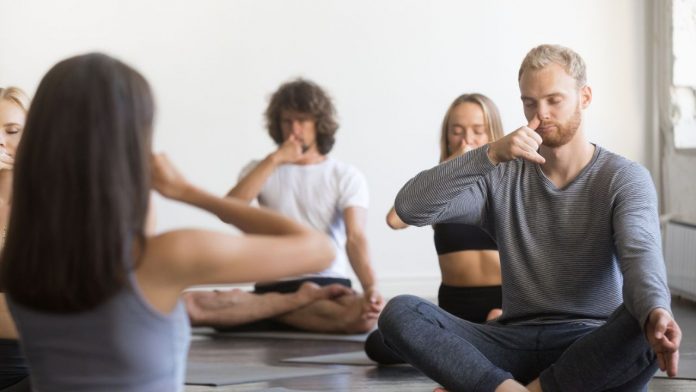Since the practice of yoga includes physical postures (asanas), breathing methods (pranayama), and meditation, all of which improve mental well-being, it has long been recognized for its beneficial effects on mental health. Yoga provides a multifaceted toolkit for managing and improving mental well-being through its combination of physical postures, breathwork, and meditation, and regular practice of Yoga has been shown to reduce stress, anxiety, and depression while enhancing overall emotional resilience and self-awareness. It offers a potent and holistic approach to promoting mental health and well-being.
Yoga’s focused and contemplative practices serve to clear the mind, increase concentration, and foster a sense of inner tranquility. By adding yoga into our life, people can create a healthier mind-body connection, discover balance, tranquility, and enhance their mental health. Yoga also promotes self-care and self-compassion, fostering a positive relationship with oneself.
The following are three yoga poses that are very good for enhancing mental health:
• Savasana, or the Corpse Pose
Savasana, sometimes referred to as the Corpse Pose, is the most straightforward yet effective yoga posture for mental wellness. It just entails resting on your back, comfortable, with your arms at your side and your eyes closed, as the name implies. Savasana promotes mental clarity, stress reduction, and deep relaxation. This position encourages inner renewal and calm while easing anxiety and enhancing sleep.
• Pranayama (Breathing Exercises)
Another is the discipline of breath regulation, or pranayama. It is regarded as the foundation of yoga and has a considerable positive effect on mental health. It involves breathing exercises that quiet the nervous system and promote mental clarity, such as deep belly breathing, alternate nostril breathing, and the triumphant breath (Ujjayi Pranayama). With its emphasis on the breath, pranayama helps people manage their anxiety and depression because it cultivates mindfulness, lowers stress, and fosters emotional stability.
• Yoga Nidra (Yogic Sleep):
Also known as yogic sleep, yoga nidra is a type of guided meditation that promotes self-awareness and deep relaxation. You can access the subconscious mind and unblock mental and emotional barriers with the help of yoga nidra, which creates a condition of conscious deep slumber. It entails lying down in a cozy position and following along with a guided meditation that progresses you through several phases of relaxation. Regular practice can improve general mental toughness while reducing the symptoms of post-traumatic stress disorder (PTSD), sleeplessness, and anxiety.

 हिंदी
हिंदी






